- The 20th anniversary of the U.S. Invasion of Iraq has brought up "mixed" feelings for many of those involved in the war.
- The conflict "changed me in many ways, personally and professionally," one former soldier told Newsweek.
- Policymakers have "lessons" to learn from the war, another said.
It was the moment 20 years ago when President George W. Bush told the world the United States was going to war with Saddam Hussein.
"These are opening stages of what will be a broad and concerted campaign," the 43rd president said on March 19, 2003, as U.S troops deployed to Iraq.
"At this hour, American and coalition forces are in the early stages of military operations to disarm Iraq, to free its people and to defend the world from grave danger," Bush told the American people at the beginning of what would turn into years of controversial conflict.
The justification for the U.S. and U.K. governments was the removal of Saddam Hussein, and his purported weapons of mass destruction (WMD). But the conflict ended in 2011 with the deaths of more than 4,400 U.S troops - and serious question marks over the reasons why the coalition forces went to war.
"To all the men and women of the United States armed forces now in the Middle East, the peace of a troubled world and the hopes of an oppressed people now depend on you," the Republican president said in his historic speech.
But twenty years after those words were uttered, the very men and women who shouldered this burden described by Bush have mixed feelings about being responsible for "the peace of a troubled world."
First Memories
It was a time of "great apprehension," in the words of retired U.S. Army Lieutenant General Mike Linnington. In 2003, he led a brigade ofthe 101st Airborne "Screaming Eagles," and was part of the invading force of Operation Iraqi Freedom in mid-March.
But "once we crossed the berm and began combat operations, that dissipated," he told Newsweek as the twentieth anniversary of the start of the war approached.
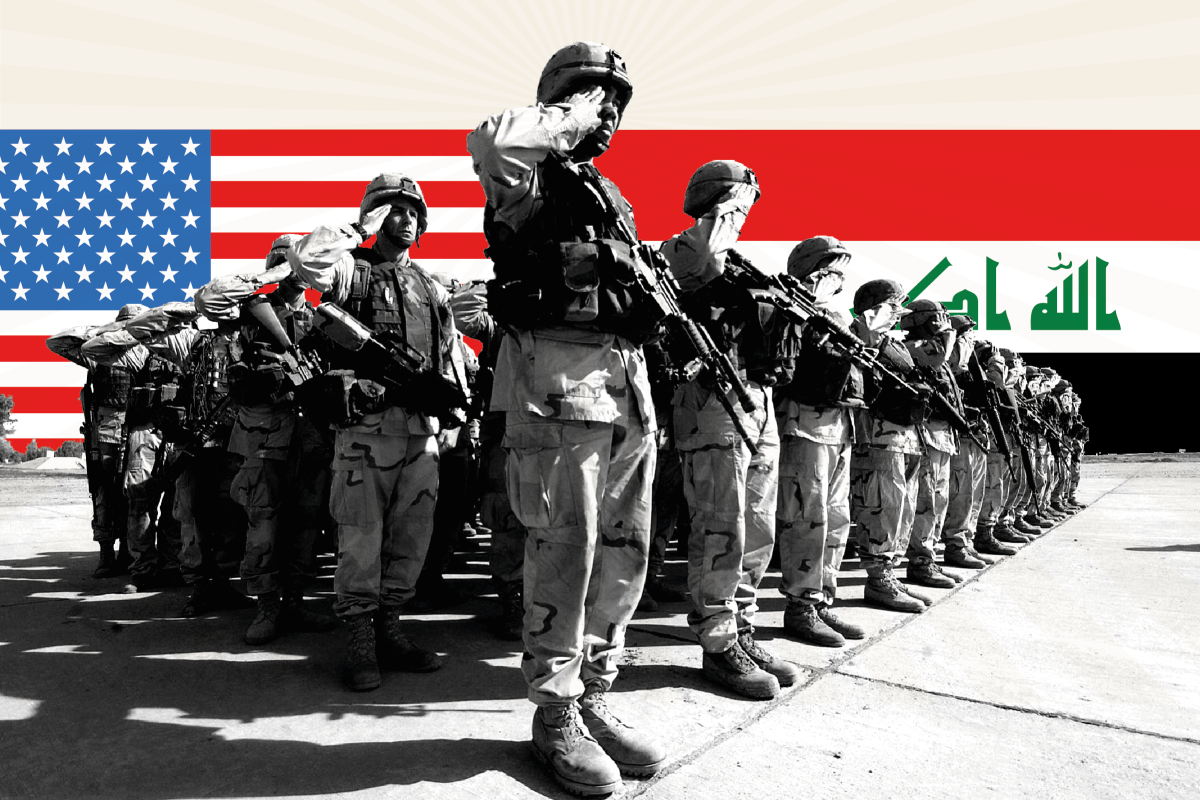
"My unit traversed the entire country over the first 30 days" before reaching Tal Afar, not far from Mosul, in the north-western corner of Iraq, he recalled.
The announcement of war sparked "initial shock" for Aaron Cornelius, who ended up serving three tours in Iraq over the years. But quickly he felt "obligated" to fulfill his military duty, not just to his country, but to the innocents in Iraq.
"I wanted to be able to protect them as well," he told Newsweek. "So I was fully ready to do so, and begin the task of going across the desert."
For many, 2003 was just the beginning - and many would follow in their footsteps. Californian Advaith Thampi, who joined the Marine Corps out of high school, shipped out just days after his 21st birthday in 2008 as a crew chief working on C-130 cargo transport aircraft.
"Someone was going to have to go to Iraq," he told Newsweek. "I just wanted to do my part." Thampi joined the military in 2005, two years after the start of the Iraq war, because the images of U.S. soldiers out in the Middle East "impacted me," he said.
The Twin Towers
For many veterans who shipped off in the years following 2001, 9/11 was part of the origin story of the Iraq war. Watching the attacks inspired anger and grief, Cornelius said, feeding a conviction to ensure that "nobody else had to endure something like that."
The al-Qaeda terrorist attacks of September 11, 2001, claimed the lives of nearly 3,000 people as nineteen extremists hijacked several commercial airplanes, which crashed into the Twin Towers of the World Trade Center and the Pentagon. Passengers on the fourth plane forced the hijackers to down the aircraft in a field in Pennsylvania.
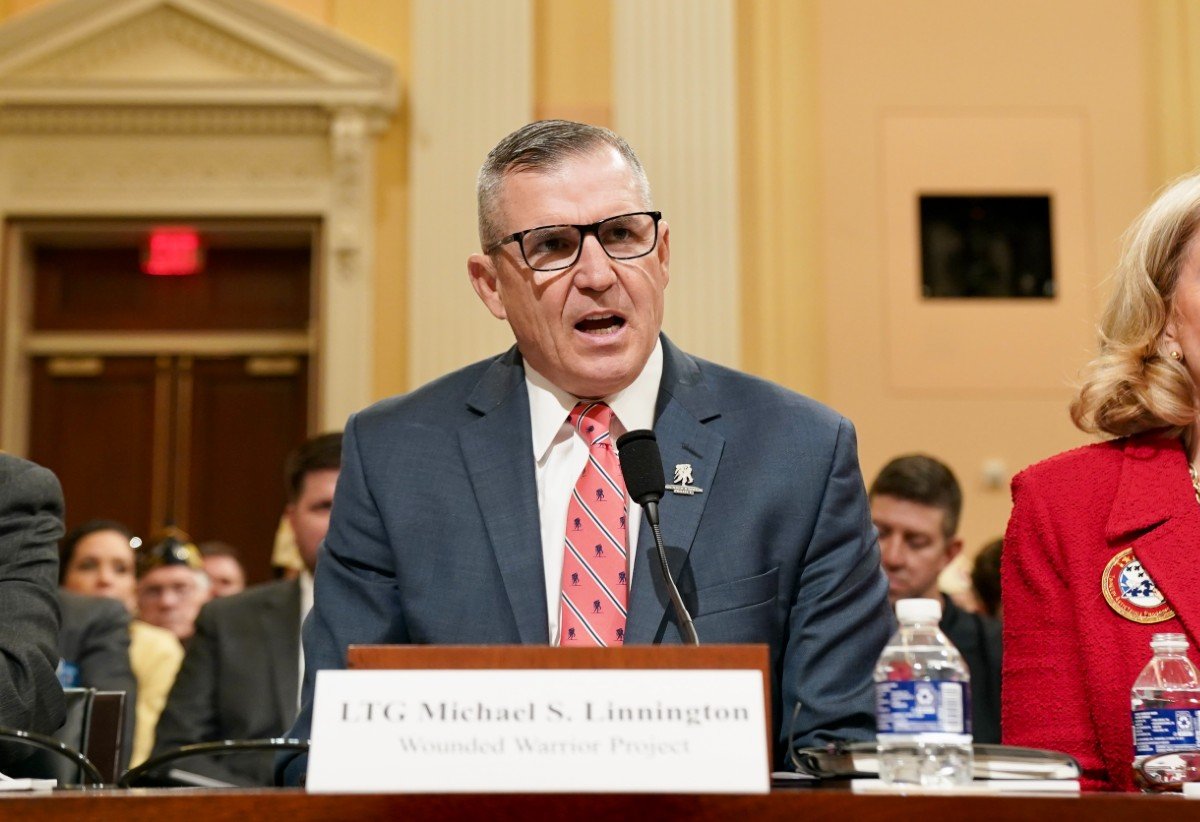
It was the single largest loss of life from a foreign attack on U.S. territory and took the lives of 441 first responders. It also left an indelible mark on American society, not least on the military personnel who ended up in Iraq years later.
But in 2004, the September 11 commission that was set up in the wake of 9/11 found no evidence of a "collaborative relationship" between Iraq and al-Qaeda, challenging a core belief that had circulated around the Iraq war.
The same year, President Bush said there were "numerous contacts between Saddam Hussein and al-Qaeda," but not that "the 9/11 attacks were orchestrated" between the Iraqi leader and the terrorist organization.
However, while the justification for the Iraq war came under scrutiny, the mental links between 9/11 and Iraq remained for many Americans.
"Before that day, I hadn't considered joining the military," Antoinette Wallace, who was then a senior in high school in Staten Island, New York, told Newsweek. "A couple weeks after I graduated I convinced my parents to sign a waiver allowing me to enlist in the New York Army National Guard." She ended up receiving her orders to deploy to Iraq in 2004.
"I was still a teenager when I was deployed and was a combat veteran before I turned 21," Wallace recalled.
Born and raised in a military household, Donna Pratt had spent years in the military before 9/11, but had returned from a run of exhausting shifts at her retail job, and mistook the news footage of the planes hitting the towers for a movie.
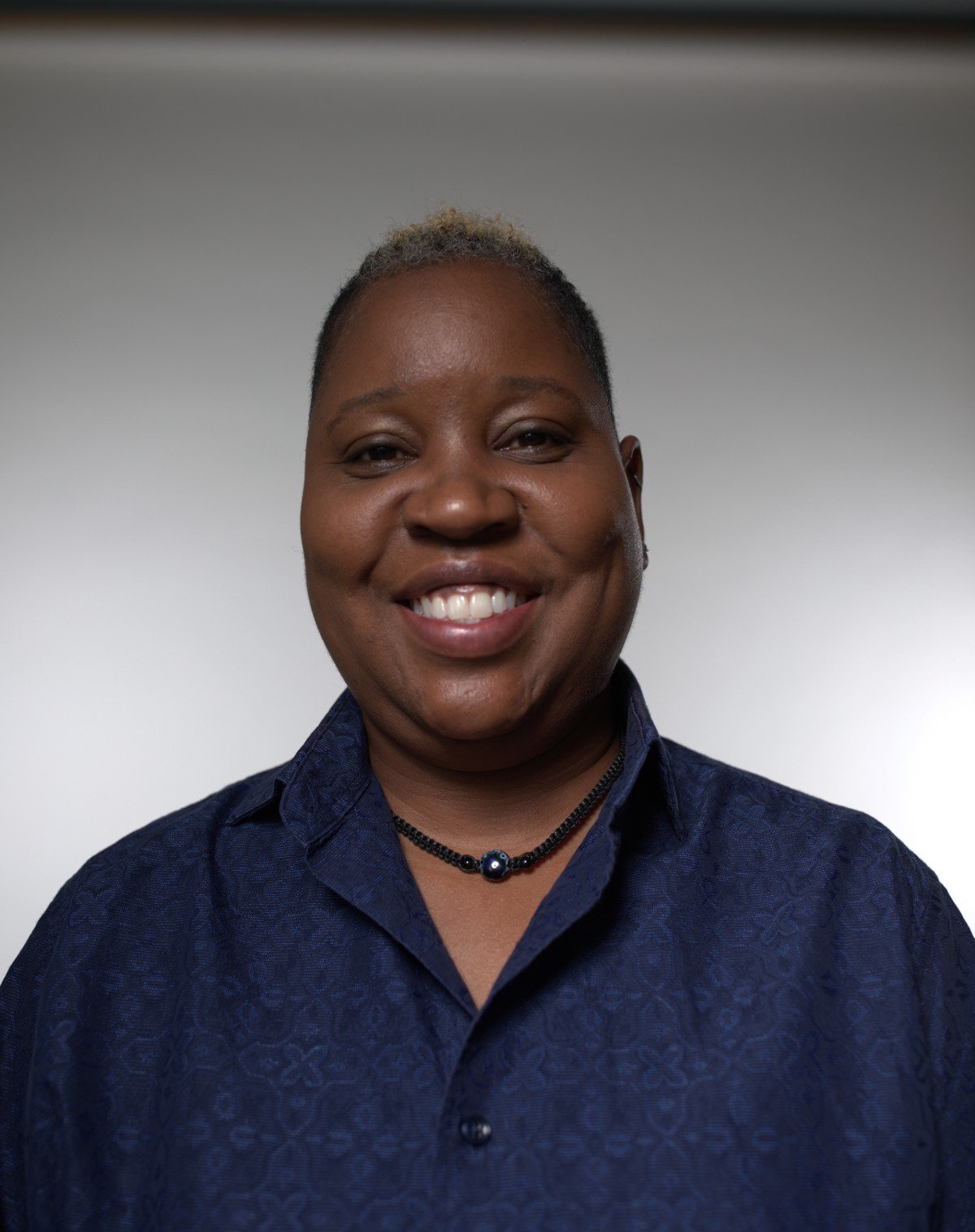
In the days that followed, she thought about rejoining the armed forces as she passed a military recruitment center on her way to work. On the third day, "I turned around and went into the recruitment station," she recounted.
"I felt like it was something I needed to do," she told Newsweek. "And I don't regret my decision at all."
Before long, she had left Chicago for the 3rd Infantry Division at Fort Stewart, Georgia, and the people she came to know as "brothers and sisters" before heading off to Iraq in October 2008.
'Unprepared For Those Realities'
"I was personally a bit unprepared" for the "realities" of serving in Iraq, Linnington recalled of his deployment. His time in the Middle East "changed me in many ways, personally and professionally," he says now. He said he came home with an understanding of Iraqi culture he did not have when he was first deployed.
Thampi agreed, recounting his lack of knowledge about the religious divides in Iraq and the politics around the Middle East. "I just was following orders and trying to work on a C-130," he mused.
A defining part of the "realities" was a pervasive feeling of paranoia, some former soldiers recount. The conflict was one rooted in urban warfare, and one with a real psychological impact, Cornelius said.
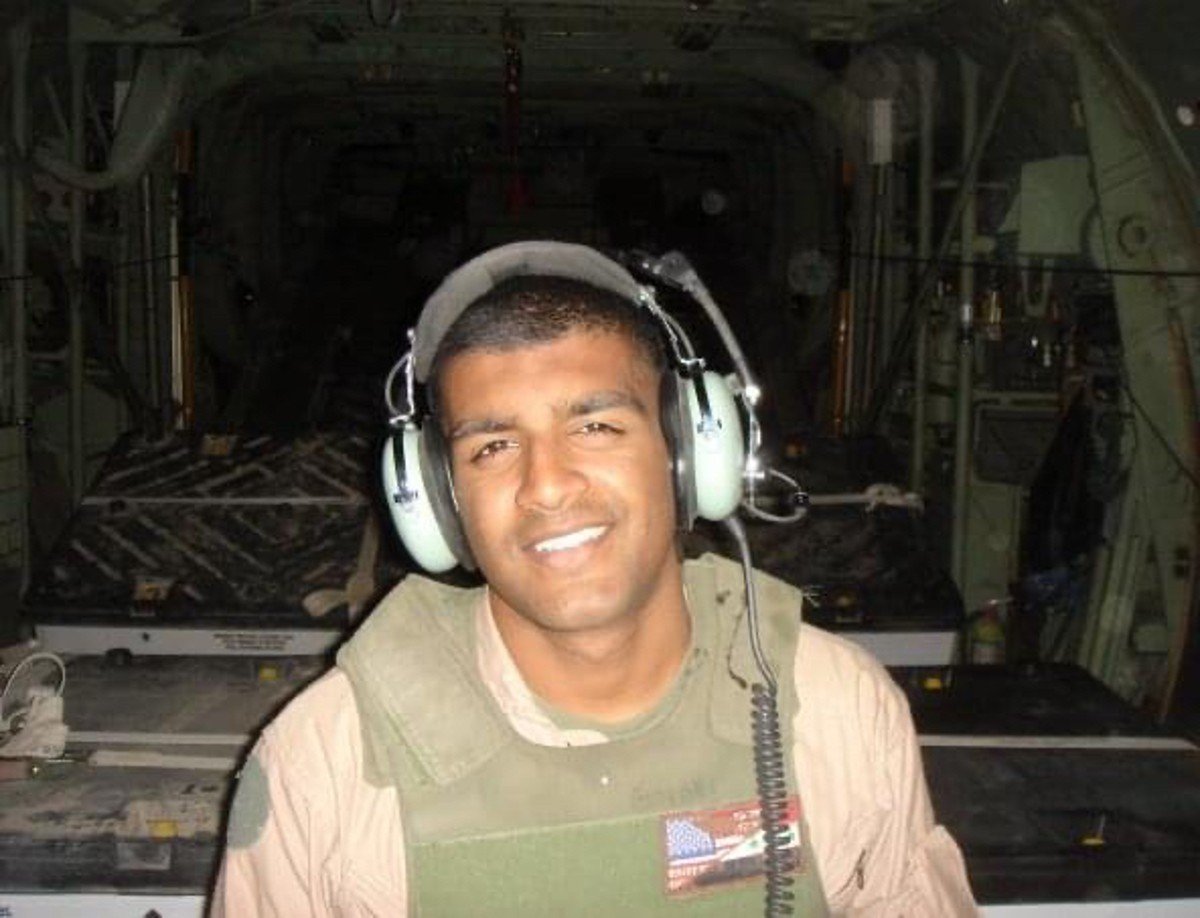
Living in fear and distrust, questioning whether sniper fire would ring out or an improvised explosive device (IED) would detonate was a "totally different" scenario to open or face-to-face attack.
"You just don't know what's safe," he said. "Everything could hurt you."
During his final tour of Iraq, he "ended up right on top of an IED," he said. The shrapnel tore into his skull, "took my eyesight and punctured my arteries and my neck."
Need For Support
But the psychological and physical impact has not ended for U.S. soldiers, just because they are no longer in Iraq.
Some military personnel suffer from anxiety and paranoia, whilst others gained a profound appreciation for their lives back home, Cornelius said. Former soldiers stress the importance of veteran support systems, and many of their reflections on the Iraq war anniversary are related to the marks left on the bodies and psyches of those who shipped out all those years ago.
Linnington is now the head of the Wounded Warrior Project, a non-profit supporting veterans and serving personnel who have sustained any form of injury from active duty. "My personal thoughts go to those in my unit that sacrificed their lives for the cause," as well as those returning back home wounded, injured or ill, he told Newsweek.
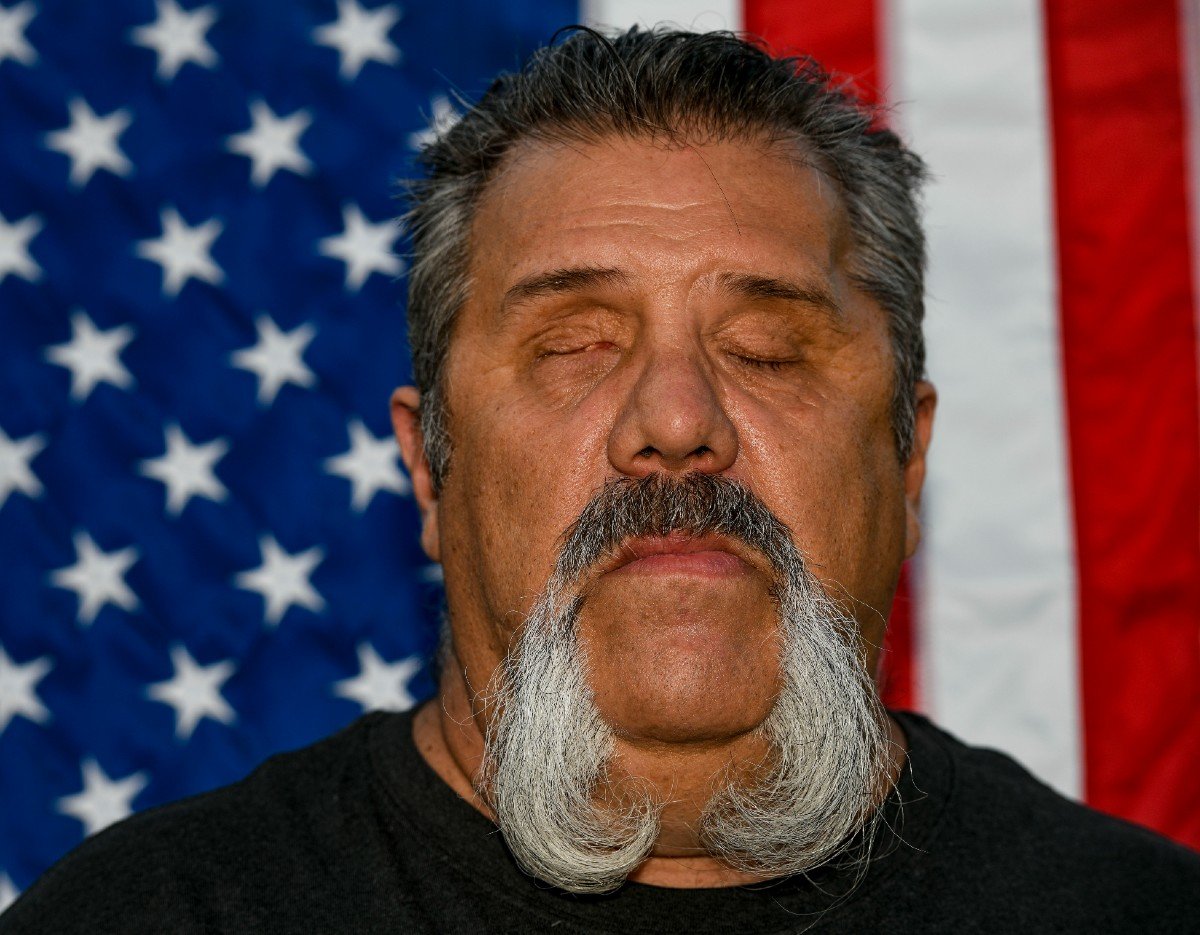
"Those sacrifices are what drew me to Wounded Warrior Project in 2015 when I took off my military uniform for the last time," he said. "For the men and women who served in Iraq, and Afghanistan as well, we have an ongoing mission to support them with programs and services that help in mental and brain health, connection, advocacy, career counseling, and long-term rehabilitative care."
Thampi now works as legislative counsel for the Iraq and Afghanistan Veterans of America, committed to improving the quality of post-9/11 veterans' lives. "There's a lot of people that need help, there are a lot of veterans who need help," he emphasized.
"If there's one message I have, it would be please reach out to your friends, and do a buddy check and make sure that the buddies you served with are doing all right," he added.
"When I got home, I realized that I would never be the same person I was pre-deployment," Wallace said. She was diagnosed with PTSD, and had sustained multiple physical injuries.
"I believed if someone found out how much I was struggling, they would think of less of me and diminish the value of my achievements," she said. "This led me to suffer in silence for almost a decade."
Changing Perspectives - But Not For All
Thampi, after returning from Iraq, began to wrestle with some "tough questions" about U.S. involvement in the Middle East. His reflections on the war come not just from evaluating "what was tangibly gained as far as American interests being protected," but about the fate of Iraqi civilians.
It is thought that more than 300,000 Iraqi civilians died as a direct result of the war, according to Brown University estimates. The number of documented Iraqi civilian deaths peaked in 2006 at 29,562 in that year, per Statista figures.
"A lot of civilians were killed in this war, and that's a very hard idea to think about" on top of the U.S. military deaths and injuries, Thampi said.
Yet a reverence for the U.S. military's people on the ground also remains for many of those who have memories of Iraq.
"I'm very proud of the work of our leaders and the teamwork they installed in their units," Linnington said, reflecting on his time in uniform "with great respect, appreciation, and love for the soldiers (and families) in the units I was assigned [to]."
But there are certainly "mixed feelings," Cornelius said. Just as the public had conflicting ideas about the war, so did many soldiers gearing up for missions, he added. Small interactions with local residents made him and soldiers "feel good," he said. But this positive feeling wasn't all that greeted U.S. soldiers; Cornelius recalled seeing a 10-year-old boy launch a grenade at U.S. forces, which "really stuck in my head."
Thinking on the war from the vantage point of two decades later, there is a balance to strike between acting as "the world's police" and helping those in need, he said, and taking care of "our own problems in our own backyard."
"But, all in all, as a soldier on the ground, doing what we were doing, I felt that, once we were there, we were helping to train soldiers to protect their own" and provide aid, he said.
Cornelius, like some service people, has questioned the long-term benefits of what the war achieved. "I feel bad for the soldiers we have lost, and I'm not sure that we've really stabilized anything there," he continued.
"There's a responsibility that comes with making these decisions," Thampi said. "I just hope they learned their lessons from the Iraq invasion."
From 9/11 through the conflicts in the Middle East, these events "changed who we are as Americans," Wallace said. "There will always something in the back of our heads that spurs hypervigilance, and it is hard to let our guards down as a result."
"War is never easy and there are a few things I view differently now than I did 20 years ago," Wallace reflected. "I wish the human toll didn't exist, as well as the lifelong injuries many of us now endure. But one thing that won't ever change is the pride I have as an American and the fact that if I had to do it all over again, I absolutely would."
This article was updated 3/23/2023 at 11 a.m. ET with additional comments from Antoinette Wallace.
Uncommon Knowledge
Newsweek is committed to challenging conventional wisdom and finding connections in the search for common ground.
Newsweek is committed to challenging conventional wisdom and finding connections in the search for common ground.
About the writer
Ellie Cook is a Newsweek security and defense reporter based in London, U.K. Her work focuses largely on the Russia-Ukraine ... Read more
To read how Newsweek uses AI as a newsroom tool, Click here.








